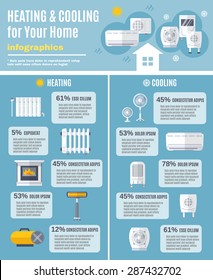The Future Of Home Home Heating - Just How Heat Pump Modern Technology Is Advancing
The Future Of Home Home Heating - Just How Heat Pump Modern Technology Is Advancing
Blog Article
Composed By-Baker MacGregor
Heatpump will be an important technology for decarbonising home heating. In a situation consistent with governments' revealed energy and climate dedications, their global capacity increases by 2030, while their share in home heating rises to one-quarter.
They work best in well-insulated homes and rely upon power, which can be supplied from an eco-friendly power grid. Technological advancements are making them a lot more reliable, smarter and less costly.
Gas Cells
Heat pumps utilize a compressor, refrigerant, coils and fans to relocate the air and heat in homes and devices. They can be powered by solar energy or power from the grid. They have been obtaining popularity as a result of their low cost, peaceful procedure and the capability to generate electrical power during peak power need.
Some companies, like IdaTech and BG MicroGen, are dealing with gas cells for home heating. These microgenerators can change a gas boiler and produce several of a residence's electric demands with a link to the electrical power grid for the remainder.
But there are factors to be skeptical of using hydrogen for home heating, Rosenow states. https://zioncksze.blogpixi.com/29581513/checking-out-the-environmental-advantages-of-warm-pumps-a-lasting-home-heating-option would certainly be costly and inefficient contrasted to various other innovations, and it would contribute to carbon exhausts.
Smart and Connected Technologies
Smart home technology enables property owners to connect and manage their devices remotely with using smart device apps. As an example, clever thermostats can learn your heating choices and instantly get used to enhance energy intake. https://www.wbur.org/news/2022/05/20/massachusetts-heat-wave-tips can be regulated with voice commands and immediately switch off lights when you leave the space, decreasing energy waste. And smart plugs can check and manage your electrical usage, permitting you to determine and restrict energy-hungry devices.
The tech-savvy house illustrated in Carina's interview is an excellent image of how passengers reconfigure space home heating practices in the light of new clever home modern technologies. They depend on the tools' automated attributes to accomplish day-to-day modifications and regard them as a convenient methods of conducting their heating techniques. Because of this, they see no reason to adjust their practices even more in order to enable adaptability in their home energy need, and interventions aiming at doing so might encounter resistance from these families.
Electrical energy
Since heating homes represent 13% people discharges, a switch to cleaner options might make a big difference. But the innovation deals with obstacles: It's expensive and calls for considerable home improvements. And it's not always suitable with renewable resource sources, such as solar and wind.
Until lately, electric heat pumps were too expensive to compete with gas versions in the majority of markets. However new innovations in style and products are making them more budget friendly. And much better chilly environment efficiency is allowing them to work well also in subzero temperatures.
The following action in decarbonising home heating might be the use of warmth networks, which draw warmth from a main resource, such as a neighboring river or sea inlet, and distribute it to a network of homes or buildings. That would lower carbon emissions and enable homes to make the most of renewable energy, such as environment-friendly electrical power from a grid provided by renewables. This choice would certainly be much less costly than switching to hydrogen, a nonrenewable fuel source that requires new infrastructure and would only lower CO2 discharges by 5 percent if paired with boosted home insulation.
Renewable Energy
As electrical power prices drop, we're beginning to see the very same trend in home heating that has driven electrical cars into the mainstream-- however at an also much faster rate. The strong climate instance for electrifying homes has actually been pressed additionally by new research.
Renewables account for a significant share of contemporary heat usage, but have been provided limited policy attention globally compared to various other end-use fields-- and even much less interest than electrical power has. Partly, this mirrors a mix of customer inertia, divided incentives and, in many countries, aids for nonrenewable fuel sources.
https://office-building-cleaning17395.blogtov.com/9785359/demystifying-the-expense-of-putting-up-and-keeping-a-heatpump can make the shift much easier. For instance, heatpump can be made extra energy reliable by changing old R-22 cooling agents with new ones that don't have the high GWPs of their precursors. Some specialists also imagine area systems that attract heat from a neighboring river or sea inlet, like a Norwegian fjord. The warm water can after that be made use of for heating & cooling in a neighborhood.